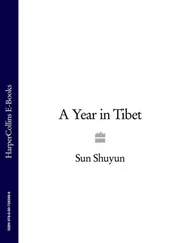There are the men whom you followed in your blindness! These were the leaders you trusted – men who moved amongst us, pretended to be Communists until they were strong enough to betray us! They used words of Revolution that stirred your hearts, but they were like the leopard that cries in the forest at night with the voice of a human, until men go out in rescue parties, never to return! 7
But did Mao convince anyone? Had the purge made the base any safer? Had it rallied people, and increased their determination to resist Chiang and defend the Soviet? Was the Red Army stronger or had the Party failed to reckon with the reaction to what they had done, and achieved exactly the opposite? I had to go to Futian to find out more. Before I carried out my research for the journey, the place had been barely on the edge of my consciousness. I did not even know where to look for it on the map, yet it was the scene of this terrible purge, setting the pattern for many more to come. The curse that undermined the Revolution started there.
The journey to Futian from Yudu took me half a day by bus. I passed through undulating countryside, peaceful now, but the scene of many fierce battles during Chiang's five campaigns. I reached Futian Village by motor rickshaw from my bus stop. The place had an air of crumbling grandeur, with many large traditional houses; the name means ‘Rich Soil’, the source of its former wealth, but the houses have been allowed to fall into disrepair, and the streets have pot-holes. Most of the towns and villages in Jiangxi I passed through on my travels, if not exactly rich, were moving with the times; they showed signs of money coming in, new houses, shops, motorbikes, trucks. I could feel hope in the air, toil being rewarded. In Futian Village, there was none of that. It seemed a place that time had forgotten, that history wanted to forget.
I stood for a long time outside the shrine hall that was the HQ of the Jiangxi Communist Committee. Once a fine traditional building, it now looked sad, with layers of faded poster characters from long ago. It was locked and, thinking of what had gone on here, I was not sure I wanted to go in. I just wanted to see the place and talk to people, so I sat down against the wall opposite it. After a while, a man in his 50s came up to me, in a faded blue Mao jacket and wide trousers, as was the custom in the south. ‘You have been sitting here for as long as I've been smoking my pipe. Why?’ I asked him whether he knew people whose families were affected by the Incident. ‘Is there a family that wasn't? Walk into any house, they will tell you. It was like a plague.’
The Futian Incident was followed by a widespread purge which took on a life of its own. People were killed for the flimsiest of reasons. The man's father was a victim. His crime? ‘He said hello to the members of the Jiangxi Committee. But who didn't? This is not a big place. If you fart, the whole village hears. You greet people, it is only human. But that was not how they looked at things. People who spoke, who nodded to each other, who smoked a pipe together, whose fields were next to each other – anybody could be a suspect and taken away. They killed people like we harvest our crops. You know what happened in the end?’ He did not wait for my answer. He was gushing like the river on the edge of the village. ‘Nobody dared to work for the Party any more. When someone was made an official, they cried and wailed. Can you imagine that? And when people from other villages had to come here for some reason, they didn't even dare to enter. They would cup their hands together and shout their message from a long way off. They were afraid to catch the plague.’
While he was talking, two more men squatted down with us and joined the conversation. ‘Madness! It was total madness,’ said one of the newcomers. ‘Nobody could understand what was going on. Red Army was killing Red Army! Communists were killing Communists! How could there be so many enemies anyway? If the men of the 20th Corps and the Jiangxi Committee had been bad people, why hadn't they defected to Chiang Kaishek? Nobody dared to tell Mao that. They were too scared. They kept their mouths shut like a grasshopper on a cold day.’
‘I would say it was paranoia,’ said his companion, while he paused to get out his pipe and tobacco. ‘Chiang Kaishek was too strong, and he scared the stuffing out of Mao. Remember, the purge happened just as Chiang was launching his First Campaign against us.’
They might have had a point about the paranoia. The purge did take place at the height of tension. On top of his military preparations, Chiang also tried a softly-softly approach. Leaflets were dropped from planes, saying anyone who captured Mao and Zhu De would get a reward of $100,000. Red Army troops were encouraged to defect; they were offered $20 for every rifle they handed in. 8 Envoys and spies were sent to the Red base to persuade generals of the Red Army to mutiny. In fact, some senior Communists did defect. The Communist Party chief in Fujian Province was the first. Another very high-ranking officer, a favourite of Mao's, went over to the Nationalists with information about the Party leaders’ houses, which the Nationalists promptly bombed. It only added to Mao's sense of insecurity.
Mao's purge was not copied from Moscow's tactics; it came before Stalin was to employ such means on any scale. It is estimated that over 20,000 people from the army, the Party, and the Jiangxi Soviet government died in the purge, which lasted just over a year. That was more than the casualties suffered by the Red Army in Chiang's first three campaigns. The purge weakened the Party at a time when it was most vulnerable, and it shook people's faith in the man they thought was their leader. Huang Kecheng, a top commander in the Red Army, first a perpetrator of the purge, and then a victim, spoke the unspeakable in his memoirs fifty years later – historians have praised them for their honesty. ‘How could the Central Bureau [in Ruijin] take over from Mao so quickly? Of course, the comrades in the Red base trusted the Party. But had Mao not lost the support of the people … ? Otherwise it would have been very difficult to push him aside …’ 9 At Futian, in front of that dilapidated shrine hall, I began to understand why Mao lost his power – he had himself destroyed the very source of it.
Futian was also the first open challenge to Mao. He never forgot it or forgave it. The three old men told me that since 1949 many other counties and villages in Jiangxi received favours from Beijing to compensate for their sacrifices to the Revolution, but the den of the ‘reactionary Futian Incident’ was not on the list. The sad state of the village said everything about its neglect. The descendants of the purge victims long continued to suffer Mao's wrath. They were easy targets in each of Mao's campaigns; they could not join the Party or the army; they were not considered for university places or recruitment by factories. The villagers appealed for over half a century to clear their name. Beijing sent senior officials to investigate their case. A leading Party historian in Jiangxi spent a decade pleading their innocence. He died before he heard the conclusion that came out in the official History of the Communist Party : ‘There was never an AB clique in the Communist Party, and the so-called AB members were the result of torture.’ That was in 1991, exactly sixty years after the Incident. Today, there is still no official apology for the people involved. That is why the shrine hall was left to rot. The villagers have not been allowed to commemorate those who died, but they will not forget them. Hopefully, the day will come when people visit the shrine hall as they do the revolutionary sites in Ruijin, and hear the stories of the dead as I did from the three old men. Then the victims of the Futian Incident will not have died entirely in vain.
Читать дальше
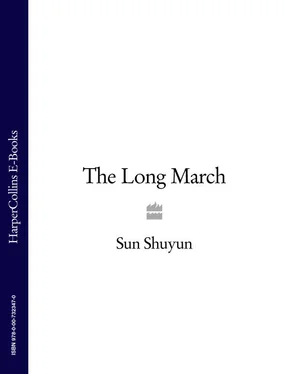
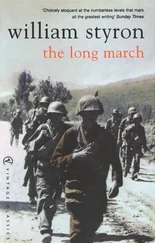
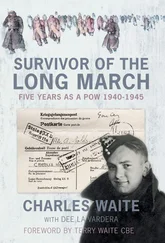
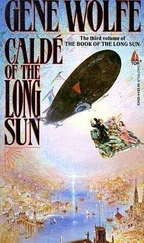



![Джеффри Арчер - The Short, the Long and the Tall [С иллюстрациями]](/books/388600/dzheffri-archer-the-short-the-long-and-the-tall-s-thumb.webp)

